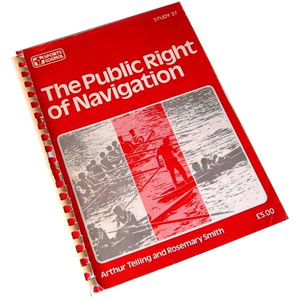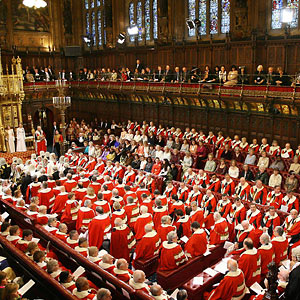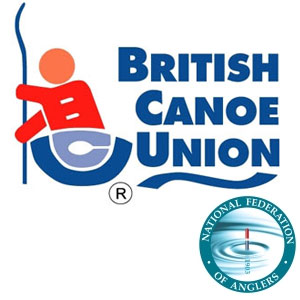The campaign for
River Access for All
What is the issue?
The issues related to river access.
There are estimated to be 42,700 miles of river in the U.K. but only 1,400 have a clear and undisputed right of public access.
These tend to be the larger, regulated rivers with active navigation authorities which are often shared with motorised craft. It's a bit like being told that if you want to enjoy the countryside you can use the A roads.
And that's where the problem starts...

The issue
What we say Read More

Others opinions
What others say Read More

Access worldwide
What happens elsewhere? Read More
What we say
The issues related to river access.
We believe there is, and has always been, a public right of navigation on all rivers for all unpowered craft physically capable of navigating them. See the details in the "What's the evidence for a PRN" section.
This lack of clarity over the law means that, whilst those who wish rivers to be their exclusive preserve threaten legal action against those they label offenders, they don't follow through, perhaps for fear of exposing the weakness of their case. In the absence of such a solution, some turn to harassment, verbal abuse and, on occasion, vandalism or violence as the weapons of choice.
For details of some of the incidents concerned go to the Access Map.
Click here to read more.
All too often what should be pleasant experiences on our rivers are marred by unpleasantness and conflict.
What others say
The opinions of others on the subject of River Access.
We also give others, if they can, the opportunity to explain the errors in our key assertions. Rights of navigation (which appear to be undisputed) can only be removed by statute or exercise of statutory authority.
So if you know of such a statute or exercise of statutory authority, please tell us here
What others say
All opinions in full

Douglas Caffyn
 In common law there is a public right of navigation on all non-tidal rivers which are naturally physically navigable by small boats and on those rivers which have been made physically navigable at public expense.
In common law there is a public right of navigation on all non-tidal rivers which are naturally physically navigable by small boats and on those rivers which have been made physically navigable at public expense.

Douglas Caffyn
The Right of Navigation on Non - tidal Rivers and the Common Law, 2004

Mr Justice Lightman
 Public Right of Navigation may only be extinguished by legislation or exercise of statutory powers or by destruction of the subject matter of PRN e.g. through silting up of the watercourse.
Public Right of Navigation may only be extinguished by legislation or exercise of statutory powers or by destruction of the subject matter of PRN e.g. through silting up of the watercourse.

Mr Justice Lightman
Josie Rowland v Environment Agency. 2002. Case No: HC 0102371.

Arthur Telling
 Ten years ago the House of Lords Select Committee on Sport and Leisure gave much attention to the use of our rivers as a much needed resource for recreation and especially for navigation. Certain problems were identified: the need to open more water for navigation, the conflicts between navigators and anglers, and above all the uncertainties of the legal position about public rights of navigation. These problems remain largely unresolved.
Ten years ago the House of Lords Select Committee on Sport and Leisure gave much attention to the use of our rivers as a much needed resource for recreation and especially for navigation. Certain problems were identified: the need to open more water for navigation, the conflicts between navigators and anglers, and above all the uncertainties of the legal position about public rights of navigation. These problems remain largely unresolved.

Arthur Telling
THE PUBLIC RIGHT OF NAVIGATION - A Report to The Sports Council and The Water Space Amenity Commission, 1985

House of Lords Select Committee
 The legal question of rights of way over water must be settled. A number of different legal interpretations of this right of way have been referred to in evidence and it is time for these to be resolved.
The legal question of rights of way over water must be settled. A number of different legal interpretations of this right of way have been referred to in evidence and it is time for these to be resolved.

House of Lords Select Committee
House of Lords Select Committee on Sport & Leisure, 1973.

National Federation of Anglers, The Water Space Amenity Commission and the BCU
 ... to work actively towards and ultimately achieve a situation where canoeists can paddle all waters suitable for canoeing without challenge, but with reasonable consideration for other water users, and with due regard for the law and conservation of the environment.
... to work actively towards and ultimately achieve a situation where canoeists can paddle all waters suitable for canoeing without challenge, but with reasonable consideration for other water users, and with due regard for the law and conservation of the environment.

National Federation of Anglers, The Water Space Amenity Commission and the BCU
Statement of Intent jointly issued by the National Federation of Anglers, The Water Space Amenity Commission and the BCU, 1982.

Department for Environment, Food & Rural Affairs
 Access to land and water should be allowed provided that there is no significant danger to public health and safety, risk of pollution or damage, or harmful impact on wildlife. If access is not possible, public notices should normally be displayed explaining why.
Access to land and water should be allowed provided that there is no significant danger to public health and safety, risk of pollution or damage, or harmful impact on wildlife. If access is not possible, public notices should normally be displayed explaining why.

Department for Environment, Food & Rural Affairs
Department for Environment, Food & Rural Affairs, Environment Act 1995 Water Industry Act 1991, Code of Practice on Conservation, Access and Recreation:, Guidance for the Environment Agency and Water and Sewerage Undertakers

Red card to Red Tape
 DEFRA should introduce a statutory right of access in England and Wales for unpowered craft to inland water for recreational purposes. This system of rights and responsibilities should be based on the Scottish Outdoor Access Code.
DEFRA should introduce a statutory right of access in England and Wales for unpowered craft to inland water for recreational purposes. This system of rights and responsibilities should be based on the Scottish Outdoor Access Code.

Red card to Red Tape
Red card to Red Tape Report commissioned by the Department for Culture, Media and Sport Researched & Written by The Sport & Recreational Alliance, 2011

The Institutes of Justinian
 by natural law, these things are common property of all: air, running water, the sea, and with it the shores of the sea.
by natural law, these things are common property of all: air, running water, the sea, and with it the shores of the sea.

The Institutes of Justinian
The Institutes of Justinian - Roman Law

US Supreme Court
 Those rivers must be regarded as public navigable rivers in law which are navigable in fact.
Those rivers must be regarded as public navigable rivers in law which are navigable in fact.

US Supreme Court
US Supreme Court - The Daniel Ball, 77 U.S. (10 Wall.) 557, 563 (1870).

John Taylor
 I truely treate that men may note and see,
What blessings Navigable Rivers bee,
And how that thousands are debarr'd those blessings,
By few mens avaritious hard oppressings.
I truely treate that men may note and see,
What blessings Navigable Rivers bee,
And how that thousands are debarr'd those blessings,
By few mens avaritious hard oppressings.

John Taylor
John Taylor (The Water Poet - 1578 - 1653)

Sir Matthew Hale
Chief Justice of the King's Bench
 If a river bee not passable by boats or vessels of burthen, yet if it bee commonly passed by small boats or troughs, it is as to that purpose a common river as a foote way may be a common way as well as a Cartway. The question whither a river bee a common or high streame or river is a question of fact and tryable by jury: and if any have commonly passed there in those small boats, is an evidence of a common streame or river.
If a river bee not passable by boats or vessels of burthen, yet if it bee commonly passed by small boats or troughs, it is as to that purpose a common river as a foote way may be a common way as well as a Cartway. The question whither a river bee a common or high streame or river is a question of fact and tryable by jury: and if any have commonly passed there in those small boats, is an evidence of a common streame or river.

Sir Matthew Hale
Sir Matthew Hale - Lord Chief Justice (1671 - 1676)

Henry David Thoreau
 Wherever there is a channel for water, there is a road for the canoe.
Wherever there is a channel for water, there is a road for the canoe.

Henry David Thoreau

EA Report W266
 Therefore in conclusion, the consensus opinion of the assembled panel of experts is:
Therefore in conclusion, the consensus opinion of the assembled panel of experts is:
"Canoeing is not harmful to coarse or salmonid fish stocks in rivers"

Environment Agency, 2000
Page 16, Effects of Canoeing on Fish Stocks, R&D Technical Report W266,

Alun Michael
 I have seen the paper "(The Right of Navigation on Non Tidal Rivers and the Common Law - Rev. Douglas Caffyn)" and it is clear that Dr Caffyn has researched this area of law very thoroughly.
I have seen the paper "(The Right of Navigation on Non Tidal Rivers and the Common Law - Rev. Douglas Caffyn)" and it is clear that Dr Caffyn has researched this area of law very thoroughly.

Alun Michael
Minister of State for Rural Affairs and Local Environmental Quality (Defra), 2001 - 2005

Sir Matthew Hale
Chief Justice of the King's Bench
 There be some streams or rivers, that are private not only in propriety or ownership, but also in use, as little streams and rivers that are not a common passage for the king's people. Again, there be other rivers, as well fresh as salt, that are of common publick use for carriage of boats and lighters. And these, whether they are fresh or salt, whether they flow and reflow or not, are primi faci publici juris, common highways for man or goods or both from one inland town to another. Thus the rivers of Wey, of Severn, of Thames, and divers others, as well above the bridges and ports as below, as well above the flowing of the sea as below, and as well where they are become to be of private propriety as in what parts they are of the king's propriety, are public rivers juris publici. And therefore all nuisances and impediments of passages of boats and vessels, though in the private soil of any person, may be punished by indictments, and removed; and this was the reason of Magna Carta cap. 23.
There be some streams or rivers, that are private not only in propriety or ownership, but also in use, as little streams and rivers that are not a common passage for the king's people. Again, there be other rivers, as well fresh as salt, that are of common publick use for carriage of boats and lighters. And these, whether they are fresh or salt, whether they flow and reflow or not, are primi faci publici juris, common highways for man or goods or both from one inland town to another. Thus the rivers of Wey, of Severn, of Thames, and divers others, as well above the bridges and ports as below, as well above the flowing of the sea as below, and as well where they are become to be of private propriety as in what parts they are of the king's propriety, are public rivers juris publici. And therefore all nuisances and impediments of passages of boats and vessels, though in the private soil of any person, may be punished by indictments, and removed; and this was the reason of Magna Carta cap. 23.

Sir Matthew Hale
Sir Matthew Hale - Lord Chief Justice (1671 - 1676) (in A Treatise in three parts)

Professor Nigel Saul
Professor of Medieval History
 In Magna Carta ......... , clause 33 was to be of enormous significance in the history of navigation in this country, because it established the principle of free passage along England's rivers, so laying the foundations for transport development in the Industrial Revolution.
In Magna Carta ......... , clause 33 was to be of enormous significance in the history of navigation in this country, because it established the principle of free passage along England's rivers, so laying the foundations for transport development in the Industrial Revolution.

Professor Nigel Saul
Professor Nigel Saul - Professor of Medieval History, Royal Holloway University of London (from a lecture to the All Party Parliamentary Group on the Constitution, 26 February 2013)
Local countries
Navigation rights
Scotland
The Land Reform (Scotland) Act, 2003 confirmed a general right of recreational access to rivers in Scotland, provided that this right is exercised responsibly. The The Outdoor Access Code provides guidance on how to exercise this right responsibly.
Other Countries whose Legal System was based on English Common Law
These are the navigation rights in other countries.
USA
All navigable rivers are subject to the Public Trust Doctrine and ownership is vested in the Sovereign State on behalf of the people. Interestingly the determination of whether a river is navigable can not be made by the state but only by the Federal Government. The Doctrine has its roots in Roman Law, recorded (but not created) by the Institutes of Gaius & Justinian which state that
by natural law, these things are common property of all: air, running water, the sea, and with it the shores of the sea.
This principal came to the U.S.A. via English Common Law.
See http://www.nationalrivers.org/us-law-public.htm for a summary of the situation which includes such gems as
After the American Revolution, the founding fathers moved quickly to ensure public rights to navigate on all navigable rivers and streams. In discussing rivers and their tributaries, the very first law passed by the United States Congress said these "navigable waters," as well as "the carrying places between the same, shall be common highways, and forever free" to the public, "without any tax, impost, or duty therefor.
Canada
The answer to these two questions on the Transport Canada website summarises the situation.
What are Navigable Waters?
In general, navigable waters include all bodies of water that are capable of being navigated by any type of floating vessel for transportation, recreation or commerce. *Note: Frequency of navigation may not be a factor in determining a navigable waterway. If it has the potential to be navigated, it will be determined "navigable".
What is the Public Right of Navigation?
The Canadian public right of navigation is not written anywhere - it is a right that has developed over time through Common Law. If the waters are navigable, then the public has the right to navigate. Gaining approval to restrict the public's right to navigate can only be done a few ways, including an Act of Parliament.
New Zealand
Since 1903 (s14 of the Coal-mines Amendment Act 1903) there has been a statutory definition of a Navigable River.
"Navigable river" means a river continuously or periodically of sufficient width and depth to be susceptible of actual or future beneficial use to the residents, actual or future, on its banks, or to the public for the purposes of navigation by boats, barges, punts, or rafts ....
That aligns very closely with Dr Rev. Douglas Caffyn's assertion of English Law
In common law there is a public right of navigation on all non-tidal rivers which are naturally physically navigable by small boats ...
Australia
Although Australia had the same Common Law as England and Wales it is interpreted that, whilst there is no public right to fish in non-tidal rivers, there is a public right to navigate a navigable river for all that can navigate it.
Other European countries
Navigation rights
Finland
The traditional Finnish legal concept of "everyman's right" allows free right of access to the land and waterways, and the right to collect natural products such as wild berries and mushrooms, no matter who owns the land.
Norway
Canoeing, kayaking, rowing and sailing in rivers, lakes, and the sea are allowed under the concept of "Everyman,s Rights". Motorised boats are only permitted in salt water. All waters are open for swimming - with the exception of lakes that are drinking water supplies.
Sweden
Sweden also has its own version of "Everyman's Rights" to responsible access to the countryside including rivers, summed up by the phrase "Don't Disturb - Don't Destroy"
France
Major rivers, formerly used for commercial navigation or transporting logs are owned by the state and are navigable by small craft without a licence. Other rivers are privately owned but there is still a right of responsible access for small craft where this is physically possible. Legislation in 1964 required the authorities to balance the needs of recreational users and this is normally done by allocation times, early morning and evening, for exclusive use by anglers and the remaining time for navigation.
Bulgaria
Rivers within Bulgaria are regarded as common property and the public can "boat freely". These rights are enshrined in the 1999 Water Act, Article 41 of which states :-
(1) Common water abstraction and use of water bodies shall be the right of citizens to use waters and/or water bodies constituting public state or municipal property for personal needs, recreation activities and aquatic sports, watering of livestock and bathing.
Hungary
There is a general right of navigation on all rivers with limited restrictions only "for extremely special cases"
Belgium
Widespread use of rivers permitted subject to some accommodation for the fishing season (particularly the first day of the season), flow rates and some environmental issues.







